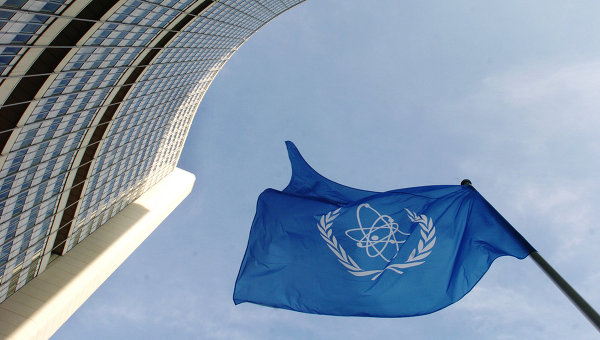IAEA to start main work on Iran's nuclear deal

Thus far, the preliminary steps were taken on implementation of the Joint Comprehensive Plan of Action (JCPOA, aka nuclear deal) and the main work will start from now on, a former consultant at the International Atomic Energy Agency (IAEA), Behrooz Bayat said.
The main work under the nuclear deal will be carried on for 10, 15 and even 25 years by the IAEA, some measures will remain permanently, Bayat told Trend Jan. 18.
Iran and the P5+1 group of countries (the US, France, the UK, Germany, China, and Russia) in July 2015 agreed on a landmark nuclear deal to curb Tehran’s sensitive nuclear activities in return for the lifting of international sanctions on the Islamic Republic. The IAEA has been given the role of verifying Iran’s commitments under the deal.
Preparing for taking the measures under the JCPOA needs coordination with Iranian officials, which made the visit of the IAEA Director General Yukiya Amano to Tehran necessary, Bayat said.
Amano arrived in Tehran Jan. 18 to meet with senior Iranian officials including Iranian President Hassan Rouhani and the head of the Atomic Energy Organization of Iran Ali Akbar Salehi.
On Jan. 17 Iran also announced that has started implementation of the Additional Protocol of the Nuclear Non-Proliferation Treaty (NPT).
Bayat said that implementation of the Additional Protocol will need more work by the IAEA, more financial resources and some steps which were not on the agency’s agenda so far.
“For instance the IAEA will monitor all stages of Iran’s nuclear activities from uranium extraction in mines to nuclear waste management,” the expert said.
Previously supervision of Iran’s uranium mines was not within the IAEA’s duties, but now based on the JCPOA and the Additional Protocol, the IAEA will also monitor the mines, Bayat added.
Based on the additional protocol the IAEA can do unannounced inspections from declared nuclear sites and even outside of declared nuclear sites, he said.
“The IAEA can request to inspect sites which are not apparently related to nuclear program and if Iran refuses, a commission consisting from Iran and the P5+1 representatives, will make the decision.”
Bayat further said that all these measures need coordination to prevent problems, because the issue is sensitive and hardliners in both Tehran and Washington, as well as some US regional allies such as Israel and certain Arab countries, will spare no opportunity to harm the nuclear deal.
---
Follow us on Twitter @AzerNewsAz
Here we are to serve you with news right now. It does not cost much, but worth your attention.
Choose to support open, independent, quality journalism and subscribe on a monthly basis.
By subscribing to our online newspaper, you can have full digital access to all news, analysis, and much more.
You can also follow AzerNEWS on Twitter @AzerNewsAz or Facebook @AzerNewsNewspaper
Thank you!
